
Sedation Dentistry – Lincoln, NE
Stay Relaxed During Your Visit
Whether it’s due to nerves or simply an inability to sit still for the entire procedure, many patients find it hard to relax during their periodontal visit. When you call Pioneer Periodontics & Implant Dentistry for the first time, don’t forget to ask about the different types of sedation we have available. Drs. Rutledge, Le, and Bradley can help you pick the best type of sedation dentistry in Lincoln, NE to keep your fear and discomfort under control during your treatment.
Why Choose Pioneer Periodontics & Implant Dentistry for Sedation Dentistry?
- Spacious, Comfortable Office
- Various Sedation Options
- Personable Doctors You Can Trust
Nitrous Oxide Sedation
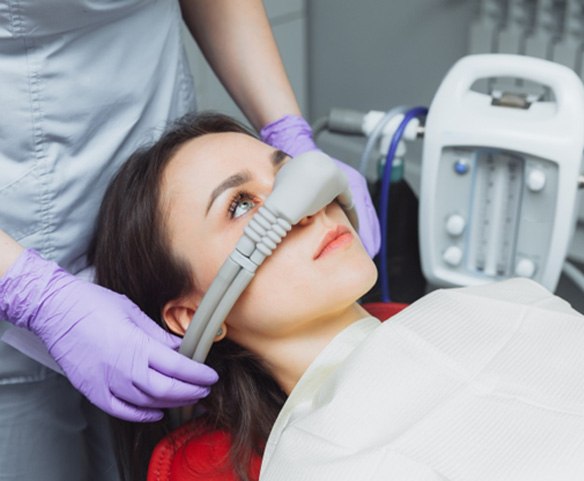
If you only need a mild sedative, you’re likely a candidate for nitrous oxide. This sedation method will help you quickly relax so that you can stay calm during your visit without being bothered by the sights and sounds around you. You can expect to feel a general sense of elation, and any pain you experience will be significantly reduced.
Am I a Candidate for Nitrous Oxide?
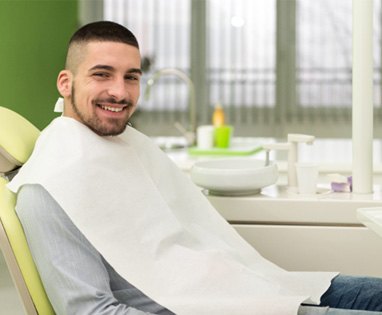
Nitrous oxide is usually suggested for patients who are afraid or anxious about their treatment. Of course, there are other cases where it can help as well. For example, if you have a powerful gag reflex or often have trouble holding your jaw open for long periods of time, nitrous oxide sedation can make the process much smoother. It’s also a good idea to be sedated if you’re currently suffering from tooth sensitivity or jaw pain that would make periodontal treatment particularly unpleasant.
How Does Nitrous Oxide Work?
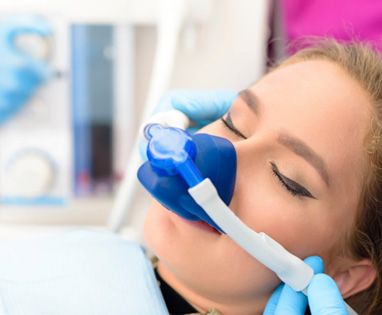
Nitrous oxide is more commonly known as “laughing gas.” Despite the name, it won’t actually make you laugh; it will, however, put you in a euphoric state where your fears and stress will melt away and you won’t be bothered by whatever is going on around you. The process for administering nitrous oxide is very simple. You wear a mask over your nose and breathe in the sedative after it has been mixed with oxygen. Depending on how the procedure goes, we may need to increase or decrease the sedation level in small increments.
At no point is nitrous oxide meant to put you fully to sleep. There are cases of patients becoming so sleepy that they doze off, but they can be gently awakened. Some people report feeling lightheaded or experiencing a tingling sensation in their arms and legs. While under the influence of nitrous oxide, you will not experience pain.
Once the procedure is complete and the sedative is stopped, it only takes a few minutes for the effects to dissipate. You may or may not remember the events of the treatment. You will, however, be alert and awake enough to drive home by yourself and continue the rest of your day as normal.
Aftercare for Nitrous Oxide

For other sedatives, you may need to set aside an entire day to fully recover from the effects. With nitrous oxide, you don’t have to make any such accommodations since the effects wear off so quickly. You may, however, receive specific follow-up instructions depending on what kind of treatment you received.
Oral Conscious Sedation
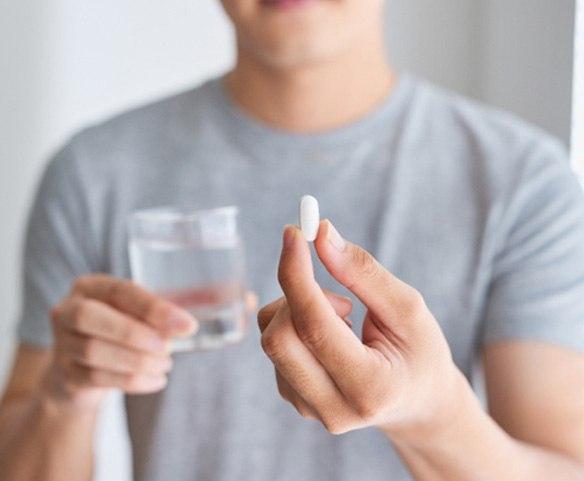
Oral conscious sedation is a stronger form of sedation than nitrous oxide. You’ll be given a pill along with instructions on when to take it. You’ll feel drowsy, but the medicine isn’t meant to put you to sleep; we can awaken you easily if you happen to doze off. The procedure will seem to pass by quickly, and you’re unlikely to recall any smells or noises associated with it.
What Is Oral Conscious Sedation?
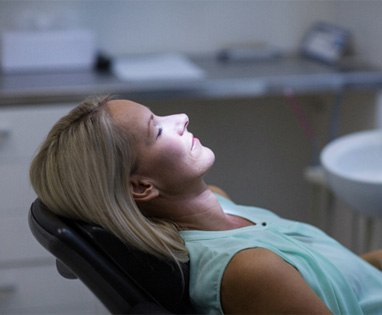
Oral conscious sedation involves the use of a medication that temporarily affects the way the brain responds to stimuli that might otherwise cause a degree of anxiety. The medication is administered orally. You swallow a pill about an hour before your procedure begins, and by the time our team starts working on your mouth, you should feel completely relaxed. Oral conscious sedation does not produce unconsciousness. Patients typically remain alert enough to respond to directions or questions from our team. If you drift off to sleep, it should be easy for us to awaken you with a gentle shake.
How Does Oral Conscious Sedation Work?

If you are interested in oral conscious sedation, let a member of our team know. Your sedation dentist in Lincoln will evaluate your candidacy for it. Oral conscious sedation is safe for most people, but there are certain circumstances that might have an impact on whether it is safe for you. For example, it might not be right for you if you are pregnant.
If you are a candidate for oral conscious sedation, you’ll receive a prescription for the sedation medication. Prior to your appointment, be sure to arrange to have someone available to drive you to and from our office. The medication is very powerful, so you should not drive for at least a full day or two after you take it.
You may not remember anything about your procedure after your sedation wears off. This is normal, and most patients view it as an additional benefit of the medication.
Benefits of Oral Conscious Sedation

Some of the most notable benefits of oral conscious sedation include:
- The medication is powerful enough to calm significant anxiety. It also works well for patients who have a strong gag reflex or who need to undergo multiple procedures at once. You can expect to breeze through your appointment!
- No needles. Many patients dislike the idea of having a needle in their hand for IV sedation. Oral conscious sedation does not require the use of needles.
- We carefully monitor our patients while they are sedated. Although complications are rare, we always remain diligent to protect our patients’ overall well-being.
IV Sedation

Even patients with severe dental phobias can enjoy relaxed, comfortable, and anxiety-free dentistry with the help of IV sedation. After the sedative is delivered to a vein on your hand or arm through a needle, you’ll very quickly start to feel completely at peace. You’ll still be able to talk to the dentist, but you won’t feel the anxiety you might normally experience.
What is IV Sedation?
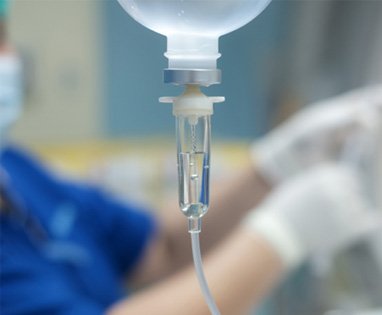
IV sedation is a form of sedation dentistry that is delivered into your vein through a needle. Its effects begin quickly, and because it’s administered intravenously, we can control the level of sedation incredibly precisely. You’ll still be able to talk to your dentist in Lincoln; however, it’s completely normal for you to doze off because this treatment is incredibly relaxing. It’s fairly common to have little to no memory of your treatment after the fact, which many nervous or fearful patients enjoy! During the entire process, we will monitor your pulse and oxygen levels for safety.
Who is a Candidate for IV Sedation?

We use IV sedation most commonly for patients who are overly fearful or anxious when it comes to dental visits. While there are other, less mild forms of sedation, this treatment option is effective in relieving moderate to severe dental anxiety. However, the only way to know with certainty if you’re a candidate is to contact our office. We will discuss your level of anxiety and the type of treatment you may need. From there, we can give you a personalized treatment plan that works best for you.
What Can You Expect After IV Sedation?
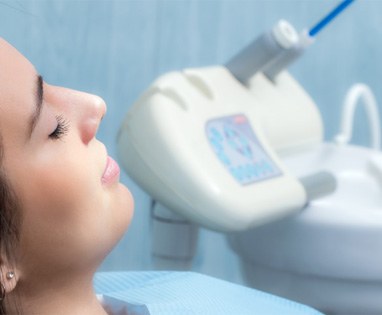
Because IV sedation is stronger than other sedation options like nitrous oxide, we recommend that you have a family member or friend drive you to and from our practice. Once your procedure is over, we will keep you in our office for about 20 to 30 minutes, allowing the strongest effects to wear off. However, you will still experience some sedation effects throughout the day, which will slowly but surely dissipate. Most patients can resume their regular daily activities after 24 hours from their IV sedation!
Sedation Dentistry FAQs
Will I Remember Anything with Dental Sedation?
You will technically be awake with most forms of sedation, but you probably won’t remember much of your procedure. IV sedation is more likely to make you forget your procedure than oral conscious sedation and nitrous oxide. The memory loss effect that sedation has makes getting dental care much easier for patients with extreme anxiety or negative past dental experiences.
What are the Risks of Sedation Dentistry?
Sedation dentistry is perfectly safe for the majority of patients. However, it can still present risks for some people. For instance, patients who have obstructive sleep apnea or who are taking certain medications may be more likely to develop complications. That’s why we will go over your health history and any medications you are taking beforehand. There are some side effects that patients may experience depending on the type of sedation they opt for. The most common ones include nausea, headache, and grogginess.
Is Sedation Dentistry Covered by Insurance?
Most dental insurance plans classify sedation as a “luxury” treatment, so the cost usually isn’t covered. However, there can sometimes be some exceptions. This may include patients who have disabilities that make it difficult to receive dental care without sedation. Sedation may also be partially covered for complex or long procedures, like multiple tooth extractions. Just remember that every plan is different, so it is always best to confirm your coverage with your provider ahead of time. We are also happy to help you navigate your benefits.
Will I Feel Any Pain with Dental Sedation?
Sedation will keep you awake yet suppress your body’s ability to register pain. Depending on your procedure, your dentist may also numb your mouth with a local anesthetic to prevent you from feeling any discomfort. If there is ever anything we can do to make you feel more comfortable in the dental chair, don’t hesitate to let us know!
Is Sedation Dentistry Worth It?
If you have severe dental anxiety or extensive work that you need to get done in one sitting, sedation can help to make your procedure much easier. Putting off the essential care you need can result in even more expensive and invasive dental treatments in the future, so it is always best to address issues as soon as possible. Paying for sedation now can help you save a lot in the long run.
How Long Does Dental Sedation Last?
The answer to this question varies depending on which type of sedation you receive:
- Nitrous oxide sedation wears off the fastest, with the effects typically dissipating within five minutes after it stops being administered.
- Oral conscious sedation can typically be expected to last for the remainder of the day.
- With IV sedation, the strongest effects should wear off shortly after your treatment is complete, but you will probably still feel too groggy to drive or operate heavy machinery for several hours.
Before you undergo any type of sedation, you should double-check with your periodontist to make sure that you have an accurate idea of how long the effects will last so that you can plan accordingly.
Can Dental Sedation Make You Sick?
With any type of sedation dentistry, there is a chance of experiencing nausea. This is generally more likely to happen with stronger forms of sedation. As such, if you plan on receiving oral conscious sedation or IV sedation, you will be instructed to fast for several hours beforehand in order to minimize the risk of nausea occurring. Additionally, periodontists can sometimes prescribe anti-nausea drugs prior to sedation; as such, we encourage you to let us know if you’re particularly prone to becoming nauseous.
Does Dental Sedation Make You Tell Secrets?
You may have heard that the drugs used for sedation dentistry act as a truth serum that can make you reveal secrets about yourself. However, this is not actually true. Nitrous oxide sedation can sometimes make you more talkative than normal, but the chances of you letting any deep secrets slip while under the effects of any form of sedation are very low. And even if you do happen to say something you typically wouldn’t, our team of caring professionals can assure you that it won’t leave the treatment area.
Is Sedation Dentistry Safe While Pregnant?
The answer to this question depends on what stage of your pregnancy you’re in. Sedation during the first trimester could have a negative impact on your child’s development, and sedation during the third trimester could increase the chances of premature labor occurring. As such, the second trimester is typically the safest time to have any form of sedation administered. That said, if possible, it might be better to simply delay your treatment until after you’ve given birth.
How Much Does Sedation Dentistry Cost?
The overall price tag of sedation dentistry can vary from case to case, but you can usually expect nitrous oxide and oral conscious sedation to cost a few hundred dollars. Since IV sedation involves more risks and requires more training, it typically has a higher cost.
The amount of time you spend under the effects of nitrous oxide sedation and IV sedation can influence the amount you end up paying. This isn’t a factor with oral conscious sedation since it involves a set dosage that is taken ahead of time.